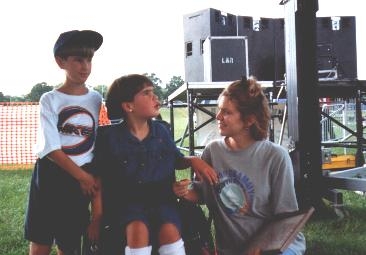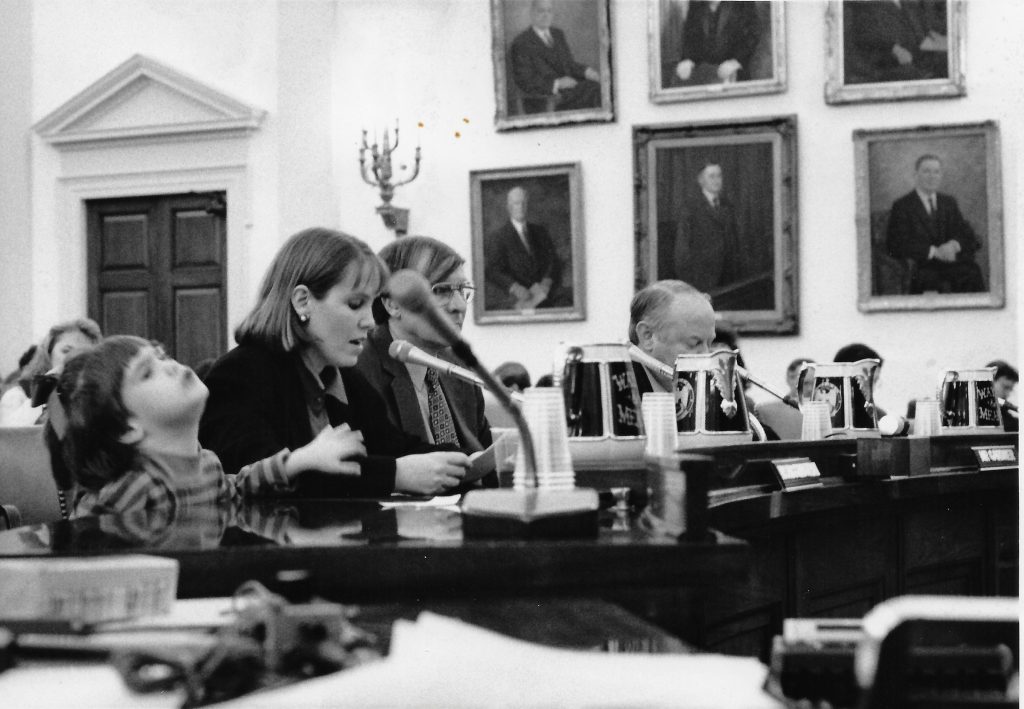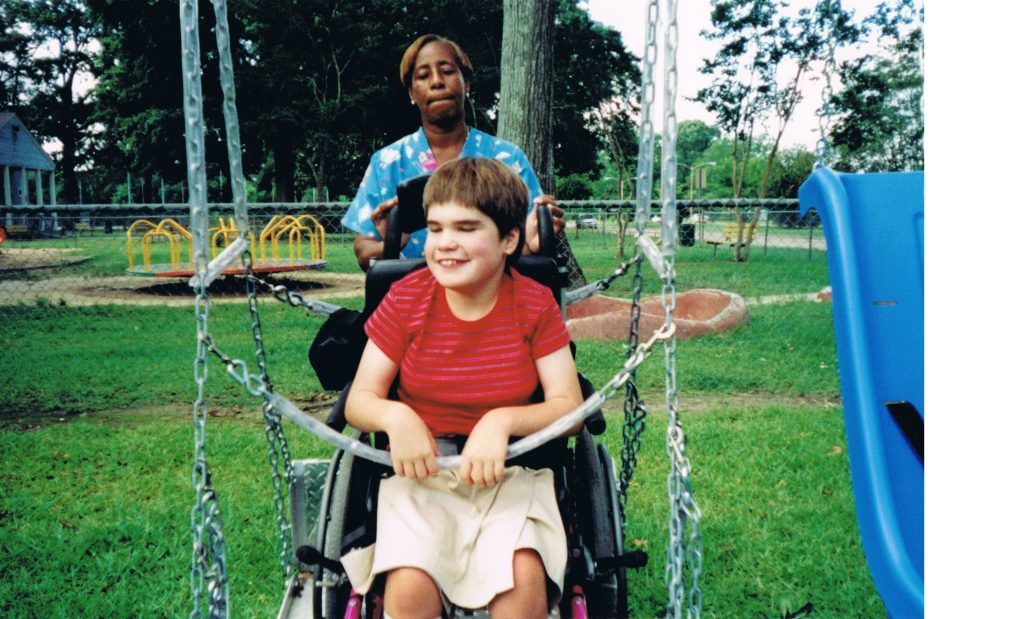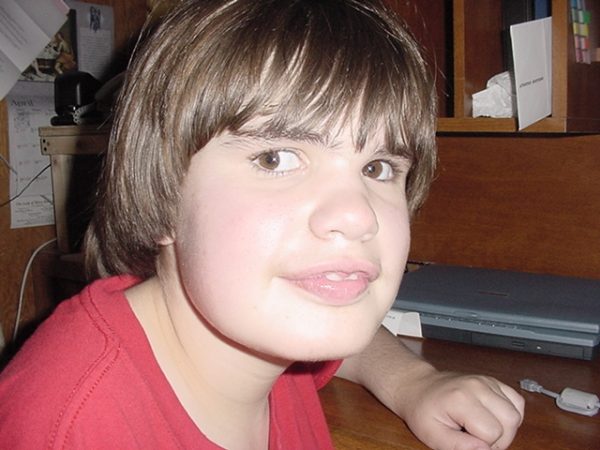Alison Higginbotham turns thirty-seven years old on June 2, 2025. She is not a businesswoman, does not lead an organization, and does not have a college degree. She has been political, of sorts. Her voice has been one of vocal silence; her voice has been one of action, not necessarily of words, and her silent voice speaks volumes.
Higginbotham had seizures in utero and, within twenty-four hours of her birth, had various types of seizures that sent her to multiple hospitals. At the age of eight weeks old, Higginbotham was diagnosed with infantile spasms, a rare seizure disorder that does not cause damage but results from brain damage or possible brain miswiring.
At two weeks of age, at the neonatal intensive care unit at Children’s Hospital in New Orleans, Louisiana, doctors told her parents to take her home and love her, that she would not live a normal life. At five weeks of age, at Methodist Hospital in Houston, Texas, doctors told her parents they believed she had hypsarrhythmia, abnormal interictal high-amplitude waves, and a background of irregular spikes, indicating infantile spasms. Hypsarrhythmia was not indicated upon initial testing, but doctors told her parents to “wait for it”. Two weeks later, at the age of seven weeks, the hypsarrhythmia brain activity was visible in Higginbotham, and it was confirmed a week later.
In July 1988, at the age of eight weeks, Higginbotham returned to Houston to participate in a study comparing high-dose (three months) versus low-dose (six weeks) Adrenocorticotropic Hormone (ACTH) treatment. She was randomly chosen for the high dose of ACTH for three months, which was administered via injections. After one dose of ACTH, the infantile spasms stopped. After four doses of ACTH, other seizure types stopped.
Since that time, Higginbotham was known to have had three seizures: one due to getting off of other seizure medication and two due to hitting her head in falls.

She, along with her mother and younger brother, advocated for children with developmental disabilities to receive care in their homes and communities rather than in state institutions, which were the “norm” in Louisiana at the time. At the time, funds were typically provided for institutional care, while families and advocates fought to have funds allocated for home and community-based care.
With her silent voice, Higginbotham advocated for children with developmental disabilities before the United States Congress, the Louisiana Legislature, various organizations, and her community. She advocated through her presence and showed that her life and the lives of other children with developmental disabilities mattered.

In January 1995, Higginbotham, with her mother, was asked to testify before the United States Congressional Sub-Committee of the House Ways and Means subcommittee against cuts to the Supplemental Security Income (SSI) program for children with developmental disabilities. Her presence spoke volumes to committee members not to cut the assistance that helps children like her; instead, the committee sought ways to create guidelines to ensure children like Higginbotham continue receiving needed benefits to assist them and their families in caring for their children at home and in their community.
She has met a sitting United States president, as well as senators, House members, and sitting Louisiana governors, senators, House members, city mayors, and council members. She helped enact a law for handicapped parking. She is remembered by almost everyone who has had the pleasure of meeting her.
She learned to crawl at the age of four and walk at the age of six (she still requires a wheelchair for long-term mobility), has said various word approximations, and can partially communicate in her environment.
Modifications were required to accommodate Higginbotham’s needs, allowing her to attend the Louisiana Lions Camp.

She seems to know directions, as Rain Main knows mathematics.
Due to her love of swinging, wheelchair swings were placed in Opelousas City Parks.
Higginbotham’s two biggest loves, besides her family, are eating and listening to the music of multiple Grammy winner Alison Krauss. Higginbotham attended six of Krauss’s concerts and met the star five times. Higginbotham could even say several word approximations of words in Krauss’ songs, such as “ba get” for “Forget About It” and “ga ba” for “Every Time You Say Goodbye”. She has made up her sign (her lack of fine motor skills prevents her from doing American sign language) for playing Krauss’s music.
When taking swimming lessons from seven to ten years old, Higginbotham would go underwater with her eyes and mouth wide open, laughing when she got above the water. She must have felt a sort of freedom from the water. Her swimming instructor would tell her, “Good job, Alison,” when she got above water. Shortly afterward, Higginbotham would go above water, muttering “ga ja” for “good job.”
Higginbotham was so taken when visiting Nashville in the summer of 1999 that her joy and laughter were addicting.
Higginbotham loved going for chocolate shakes (unfortunately, she can no longer have chocolate), and when getting close to the place to get a shake, she would click her tongue louder and louder to indicate that they should keep going.
Higginbotham has been a “cheerleader” all of her life. She has cheered not only for herself but also for others with developmental disabilities. There have been defeats, tears, joys, jubilations, and triumphs.
A resident of Lafayette, Higginbotham still requires total assistance with everything in her daily life, as she has throughout her life.
At thirty-seven years of age, she has much in her life.
Her life has certainly not been one of normalcy, but it has been normal for her.
Author’s Note: Alison Higginbotham is my daughter. She has undoubtedly inspired me and shown me the strength I never knew I had within me. Her health is currently declining, probably due to the disabilities she has endured throughout her life; she still gives me strength. She, her brothers, and my family have been my source of strength and courage, enabling me to be who I am.


